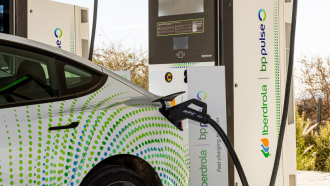Good news to the world: Zika virus vaccine may be ready for emergency use by the year's end, developers say.
The announcement is far ahead of the timeline set by U.S. authorities, signifying possibly earlier eradication of the global mosquito-borne infection.
"I'm amazed," says Gary Kobinger from the National Microbiology Laboratory in Winnipeg, Canada. "This vaccine is already in clinical production."
Kobinger is part of team working on a Zika virus vaccine and was also involved in the development of an Ebola vaccine that proved effective in Guinea.
Kobinger says the vaccine may be up for human testing as early as August 2016. If trial results come out successful, developers may be allowed to administer it for emergency use by October or November 2016.
He adds that the initial intervention to do is to expect for the worst as the vaccine is a breeze to manufacture and could be started at high levels within a short period of time. However, he has not specified the exact time when the world could have access to it.
Kobinger is collaborating with teams from the University of Pennsylvania, Inovio Pharmaceuticals Inc. and GeneOne Life Science Inc. from South Korea.
Inovio chief executive Joseph Kim says making the vaccine available before 2016 is an aggressive endeavor, but it is possible.
"We believe we're ahead of the pack in the race for a Zika vaccine," says Kim.
Other teams are also developing Zika virus vaccines, but they appear to be moving at a slower pace. For instance, Butantan Institute in São Paulo, Brazil says it is already planning to create a vaccine in record time, but its leader says it will take them about three to five years to finish.
Zika virus is a self-limiting disease typically characterized by mild fever and rashes. In the past, experts said developing vaccines against it was not a major concern.
With the spike of global cases, WHO has deemed vaccine development urgent. In an official statement, the organization says it will prioritize vaccine and diagnostic test development to fight the disease.
U.S. National Institute of Allergy and Infectious Diseases director Dr. Anthony Fauci, on the other hand, says that while the agency is working on it, it is impossible to develop a Zika virus vaccine within this year or in the coming years.
Georgetown University experts Daniel Lucey and Lawrence Gostin agree with Fauci, saying it would probably take three to 10 years to develop a vaccine even with accelerated efforts.
Photo : NIAID | Flickr









